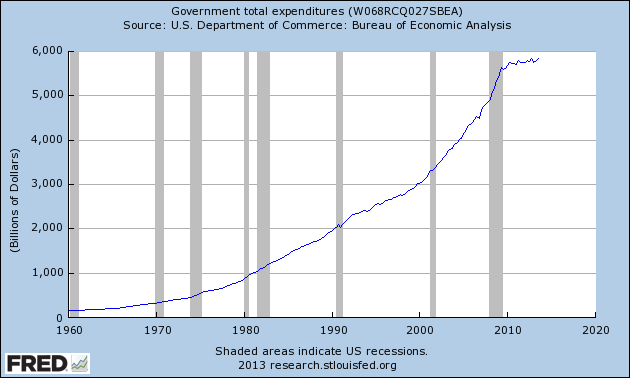I left a short comment on a recent post by Don Boudreaux on the minimum wage where he invoked the law of demand to defend the idea that minimum wages reduce employment for low skill workers. I wrote:
"The demand curve is downward sloping in models where minimum wages have a positive effect. I know you know this. Could you PLEASE stop citing the law of demand when you argue this point?"
My reasons for writing it were relatively narrow. Don has a big audience and I feel like he dumbs down ideas that he disagrees with a lot to give the impression that anyone that thinks those things just doesn't understand economics or doesn't appreciate that you can no more repeal the laws of economics than the laws of nature. This bugs me a lot, and in this case I know he knows that the demand curve is downward sloping in the monopsony model so I thought it was worth raising the point.
That's all that motivated me, but
he responded with a much longer post that provides an opportunity to unpack a few more things about the minimum wage. So why not! First he writes:
"First, Daniel mistakenly assumes that the majority (or even many) supporters of minimum-wage legislation have the monopsony model in mind as the basis for their support."
Not true. I don't assume this - I agree with Don completely on what motivates most supporters of the minimum wage. It's not clear what Don's point is with this, though. I'm sure a lot of Americans think human life is valuable because
as many as two thirds believe that God created human beings rather than evolution by natural selection (other polls, thankfully, come in lower). Surely Don wouldn't begrudge an evolutionary biologist his or her commitment to the value of human life because the majority derive their sense of value from divine creation? Or to put it more simply: Don needs to take that up with the people that think that way. The fact is most people take positions on economic policies without good economic reasoning. So? What possible relevance could that have for me making my case, as an economist.
But Don is getting ahead of himself anyway. Later he refers to me as one of these supporters of the minimum wage. I'm not. I'm of the opinion that it's a pretty dumb policy to help low income workers. I don't worry about it as much as Don does because the literature suggests to me that it's not particularly destructive. Modest minimum wages may even help a little due to monopsony effects (but we have to keep in mind that in many states there are very immodest minimum wages). So to me, from my read of the literature, it's not something I lose sleep over. But it's not something I get excited about or support either.
I'm a labor economist and I'm interested in understanding how labor markets work. I raise the point of monopsony because I am presented with two basic theories: competitive markets and monopsonistic markets, and the data. The best empirical studies seem to be scattered right around a zero employment impact of the minimum wage. Some excellent studies are just above and some excellent studies are just below. This is not what we would expect to see if these labor markets are competitive. Why aren't
all of them below zero? I am forced to conclude that there is some monopsony power so that in many of these cases the minimum wage hits in that sweet spot where employment can be raised. The minimum wage isn't shockingly high in all cases, after all. Think about trying to live on that sort of wage. So it's not implausible that it would hit this sweet spot. I don't see how I can reject the monopsony model without being disingenuous.
And this is even before getting to the large literature on monopsony power in labor markets that has nothing whatsoever to do with the minimum wage! That's independent confirmation! If you find evidence of monopsony power in work completely unrelated to the minimum wage you validate monopsony power as an explanation of the cluster-around-zero findings in the minimum wage literature.
But enough about my motives here - more from Don.
Don then proceeds to ask what I think is a pretty dumb question: "
Why do you not start your own businesses to hire these workers?". The answer for me and presumably a lot of people is that I have no particular skills in starting up and running a business of any kind. I do decently in certain narrow areas. I've got a pretty good track record competing for research contracts, and in conducting and writing up labor market research. I have no reason to believe I could run a fast food restaurant or big box retail establishment. There are people that are good at this, that pay people a higher than minimum wage and get value for it. I'm not one of them. Not everyone has access to the same production function, though. That's where entrepreneurship comes in.
This gets problematic, and the misstatement here really gets to the heart of the whole monopsony point:
"If your monopsony theory accurately describes the reality of the market today in the U.S. for low-skilled workers, why do you not make yourselves richer while simultaneously breaking the monopsony that you believe justifies legislation through which government, with your blessing, orders all low-skilled workers who cannot persuade employers to hire them at the ‘minimum wage’ to remain unemployed?"
Ignore the second half - as I said above Don is misattributing a policy stance to me. I have concerns about the whole "make yourselves richer" thing. The profits to be gained by a monopsonist come from
exercising their monopsony power. It makes no sense for profit-seekers to go out and pay workers their marginal product in order to get rich. That is the whole problem of monopsony. Profit seekers exercise the monopsony power that is available.
I'm concerned about this misstatement because it makes me wonder if we're really on the same page. Assume for the sake of argument that monopsony power exists. Assume firms are profit-seekers (as Don exhorts me to be - he wants me to seek out my riches). IF there is monopsony power AND firms are profit-seekers, what do we expect to see? NOT what Don wants to see here. If monopsony power could just be competed away it wouldn't be monopsony power.
Don then makes a point I entirely agree with. Minimum wages imposed on firms with monopsony power can lead to substitution towards capital goods. This is true. The labor market would be more efficient but it would result in lower levels of employment (at least in partial equilibrium... unless Don is ready to cry "technological unemployment" he needs to be careful with this point).
He concludes by pointing out that monopsony in the labor market does not imply monopoly in the goods market. I'm having a little trouble right now understanding why this would matter (I'm sure he's right that it does), but I have trouble with the premise. I usually assume that almost all markets in modern commercial economies are characterized by monopolistic competition, and that there is a decent range of monopoly power that firms exercise unless they're producing commodities or something like that.
















